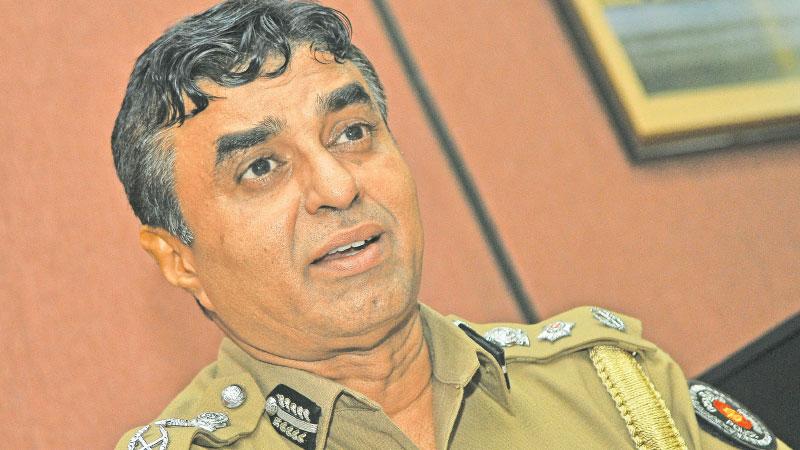
Minister of Public Administration and Law and Order, Ranjith Madduma Bandara speaking at a media conference said that the Government has no intention to remove the Inspector General of Police (IGP) ,however; an inquiry will be conducted into allegations levelled against his conduct.
Since his appointment in April 2016, to the post as the country’s 34th Inspector General of Police (IGP), Pujith Senadhi Bandara Jayasundara has managed to attract calls for his removal almost every year.
Just eight months into his appointment, in December 2016, the IGP was heard speaking with an unidentified caller, which he answered in the middle of making a speech at a ceremony held in Ratnapura and was heard to say that he will instruct the Financial Crimes Investigation Department (FCID) to refrain from arresting a certain individual.
Again in April 2017 footage was released, showing an infuriated IGP shoutingat a lift operator at the Police Headquarters for not attending the meditation program introduced and made compulsory by him.
At the very end of the video clip the IGP is seen threatening a female receptionist with rape.
Early this month another footage where the IGP is seen acting in an unsuitable manner and disrespecting several Buddhist monks at a function,emerged. With this and several other allegations that were made regarding close ties between the IGP and Head of Terrorist Investigation Unit, D.I.G Nalaka de Silva who is currently on temporary leave due to being investigated, has resulted in yet again calls for the removal of the IGP.
As on previous occasions where many including civil society activists,politicians and even the ordinary man on the streets is of the view that the IGP should be removed or that he should resign from his post.
In the event an inquiry into the questionable actions of the IGP is substantiated then his removal from office will follow.
Speaking to the Sunday Observer, President’s Counsel J C Weliamuna stated that although the Constitutional Council is vested with powers to appoint the IGP, special procedures are laid down pertaining to the removal.
Removal of the Attorney General and the Inspector General of Police is specifically laid out in the Removal of Officers (Procedure) Act No. 5 of 2002 which clearly states that removal of either of the officer is possible only under specified circumstances varying from insolvency, ill health,physical or mental impairment, conviction of moral turpitude, treason or bribery, misconduct or corruption, gross abuse of power of his office,gross negligence of duty, gross partiality in office and ceasing to be a citizen of the country.
“Only under this provision he can be removed. It needs a special inquiry.
Once the inquiry officers are appointed it’s a day to day hearing that might take about a week at the most. The only thing is, both, the government and the Opposition must agree on the cause otherwise it will not move.
Meanwhile, during a press conference held last morning the Joint Opposition, former President and Parliamentarian Mahinda Rajapaksa said they will support a resolution brought to Parliament to remove the IGP.
According to the procedures laid out, a notice should first be presented to Parliament seeking to remove the IGP by the President, provided on the grounds spelled out under the Act, which has to be signed by a third of the total members. Once the notice is filed a resolution can follow which subsequently has to be passed with a majority of the members, including those not present.
Jayasundara was summoned before the Constitutional Council early this month when Chairman of the Police Commission, P. H. Manatunga complained that recommendations made by the Commission were not being followed by the IGP.
One of the recommendations included a proper investigation on allegations levelled against DIG Nalaka de Silva as not having sufficient educational qualifications.
